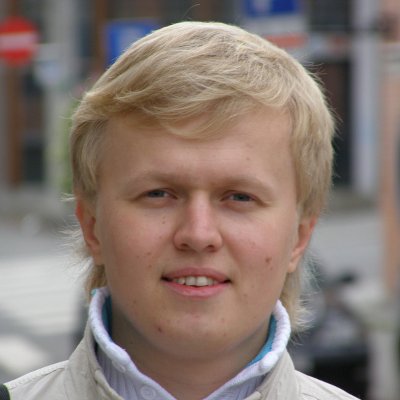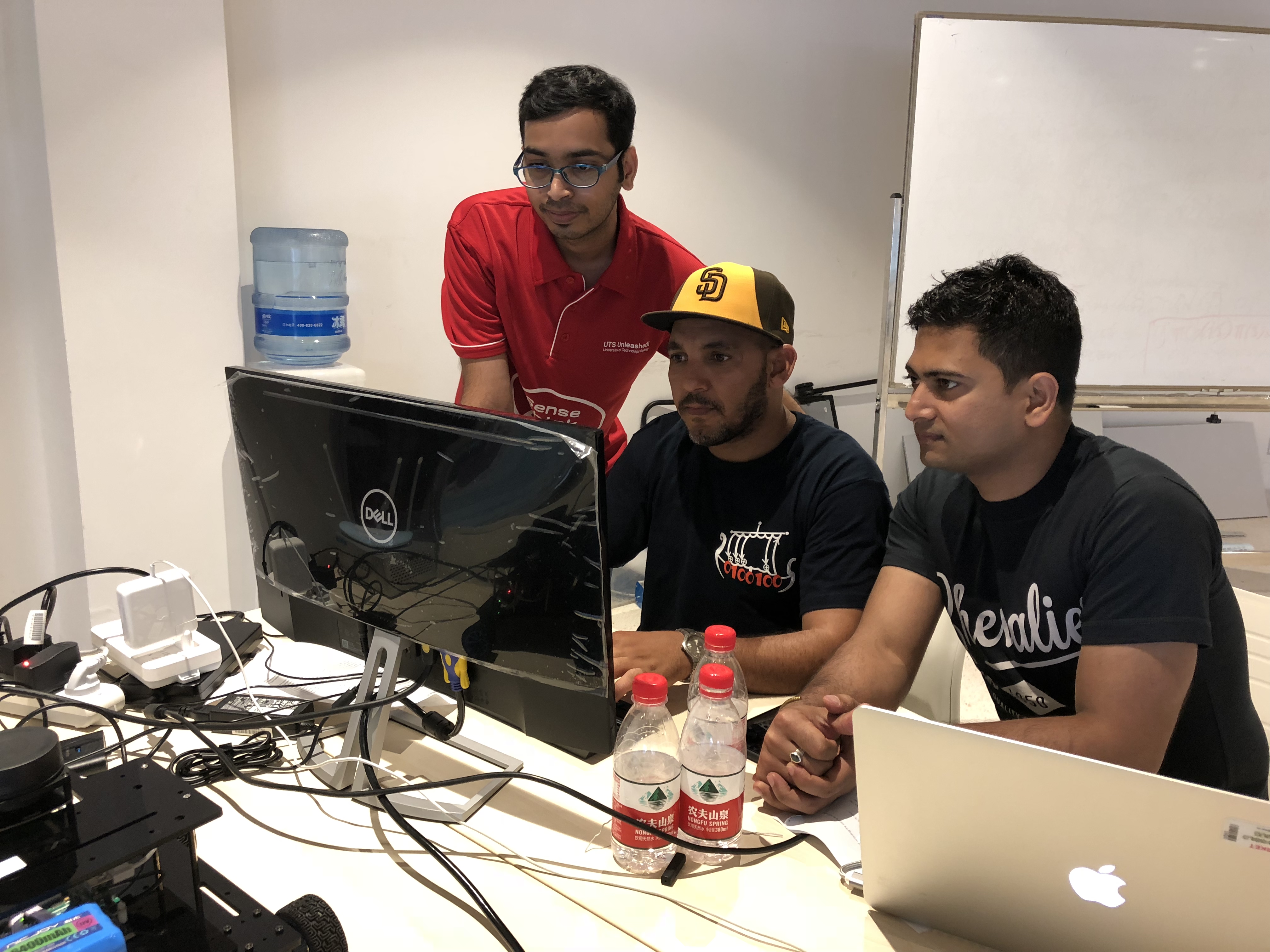
Andrii Shalaginov
Ph.D. started in: 2013
Year of graduation: 2018
COINS consortium member: Norwegian University of Science and Technology
Supervised by: Katrin Franke
Links: ![]()
![]()
![]()
Research area: Digital Forensics
Project title: Application of soft computing for information security
Project description: The digital forensic has been influenced by large and complex data as a key factor of emerging new ICT. The size, the velocity, the variety and the complexity of the data has became so high that the classical data mining approaches are no more efficient for use in forensics data science. The forensics analysts experience difficulties in forensically sound Big Data processing due to lack of corresponding techniques. There are no unique solutions at the moment and approaches vary for a case to a case. To achieve multiple goals we propose to develop an application of nature-inspired Soft Computing paradigm in Digital Forensics. They are able provide explainable solution to computationally hard problems and reduce efforts for manual analysis and perception. Our objective is to apply the hybridization of the existing solutions, which can handle the major drawbacks of Soft Computing such that accuracy and computational time. The most important part of the work for us is to comply with needs for Dig Data analysis. It will provide insights into importance of explainable Big Data mining.
- Joachim Hansen, Kyle Porter, Andrii Shalaginov, Katrin Franke (2018). Comparing Open Source Search Engine Functionality, Efficiency and Effectiveness with Respect to Digital Forensic Search
- Asif Iqbal, Farhan Mahmood, Andrii Shalaginov, Mathias Ekstedt (2018). Identification of Attack-based Digital Forensic Evidences for WAMPAC Systems
- Asif Iqbal, Andrii Shalaginov, Farhan Mahmood (2018). Intelligent analysis of digital evidences in large-scale logs in power systems attributed to the attacks
- Andrii Shalaginov (2018). Advancing Neuro-Fuzzy Algorithm for Automated Classification in Large-scale Forensic and Cybercrime Investigations: Adaptive Machine Learning for Big Data Forensic
- Andrii Shalaginov, Sergii Banin, Ali Dehghantanha, Katrin Franke (2018). Machine Learning Aided Static Malware Analysis: A Survey and Tutorial
- Andrii Shalaginov, Katrin Franke, Jan William Johnsen (2018). The 2nd International Workshop on Big Data Analytic for Cyber Crime Investigation and Prevention 2018
- Andrii Shalaginov (2017). Computational Forensics
- Andrii Shalaginov (2017). Dynamic feature-based expansion of fuzzy sets in Neuro-Fuzzy for proactive malware detection
- Andrii Shalaginov (2017). Evolutionary optimization of on-line multilayer perceptron for similarity-based access control
- Andrii Shalaginov (2017). Fuzzy logic model for digital forensics: A trade-off between accuracy, complexity and interpretability
- Andrii Shalaginov (2017). Machine Learning Aided Malware Analysis – Research at NTNU
- Andrii Shalaginov, Katrin Franke (2017). A Deep Neuro-Fuzzy method for multi-label malware classification and fuzzy rules extraction
- Andrii Shalaginov, Katrin Franke (2017). Big data analytics by automated generation of fuzzy rules for Network Forensics Readiness
- Andrii Shalaginov, Katrin Franke, Jan William Johnsen (2017). IEEE Big Data 1st International Workshop on Big Data Analytic for Cyber Crime Investigation and Prevention 2017
- Andrii Shalaginov, Jan William Johnsen, Katrin Franke (2017). Cyber Crime Investigations in the Era of Big Data
- Lars Christian Andersen, Katrin Franke, Andrii Shalaginov (2016). Data-driven Approach to Information Sharing using Data Fusion and Machine Learning for Intrusion Detection
- Sergii Banin, Andrii Shalaginov, Katrin Franke (2016). Memory access patterns for malware detection
- Andrii Shalaginov (2016). Soft Computing and Hybrid Intelligence for Decision Support in Forensics Science
- Andrii Shalaginov, Katrin Franke (2016). Intelligent generation of fuzzy rules for network firewalls based on the analysis of large-scale network traffic dumps
- Andrii Shalaginov, Katrin Franke (2016). Multinomial classification of web attacks using improved fuzzy rules learning by Neuro-Fuzzy
- Andrii Shalaginov, Katrin Franke, Xiongwei Huang (2016). Malware Beaconing Detection by Mining Large-scale DNS Logs for Targeted Attack Identification
- Andrii Shalaginov, Lars Strande Grini, Katrin Franke (2016). Understanding Neuro-Fuzzy on a Class of Multinomial Malware Detection Problems
- Gaute Wangen, Andrii Shalaginov (2016). Quantitative Risk, Statistical Methods and the Four Quadrants for Information Security
- Gaute Wangen, Andrii Shalaginov, Christoffer V Hallstensen (2016). Cyber security risk assessment of a DDoS attack
- Andrii Shalaginov (2015). Application of Computational Intelligence for Digital Forensics
- Andrii Shalaginov (2015). Automated generation of the human-understandable rules from network traffic dumps
- Andrii Shalaginov, Katrin Franke (2015). A New Method for an Optimal SOM Size Determination in Neuro-Fuzzy for the Digital Forensics Applications
- Andrii Shalaginov, Katrin Franke (2015). A new method of fuzzy patches construction in Neuro-Fuzzy for malware detection
- Andrii Shalaginov, Katrin Franke (2015). Automated generation of fuzzy rules from large-scale network traffic analysis in Digital Forensics Investigations
- Andrii Shalaginov, Katrin Franke (2015). Generation of the human-understandable fuzzy rules from large-scale datasets for Digital Forensics applications using Neuro-Fuzzy
- Andrii Shalaginov, Katrin Franke (2015). Towards Improvement of Multinomial Classification Accuracy of Neuro-Fuzzy for Digital Forensics Applications
- Andrii Shalaginov, Katrin Franke (2013). Automatic rule-mining for malware detection employing Neuro-Fuzzy Approach
- IMT6005 COINS Workshop II (NTNU), 1 ECTS, 2016
- IMT6003 COINS Summer School (NTNU), 3 ECTS, 2015
- IMT6004 COINS Workshop (NTNU), 1 ECTS, 2014
- ENISA, Athens, Greece, 2015
- COINS summer school, Metochi, Greece, 2017
- COINS/SWITS Ph.D. student seminar, Oslo, Norway, 2017
- COINS Finse winter school, Finse, Norway, 2017
- COINS Ph.D. student seminar, Bergen, Norway, 2016
- COINS Summer School on Authentication, Metochi, Greece, 2016
- NISK, Ålesund, Norway, 2015
- NordSec 2015, Stockholm, Sweden, 2015
- COINS Ph.D. student seminar, Stockholm, Sweden, 2015
- COINS Summer School on Cloud Security, Metochi, Greece, 2015
- COINS Ph.D. student seminar, Tromsø, Norway, 2014
- Resource-aware Machine Learning International Summer School, Dortmund, Germany, 2014
- CTF, hack.lu, online, 2014
- CyberCamp, Madrid, Spain, 2014
- CTF, hack.lu, online, 2013
- NISK, Stavanger, Norway, 2013
- COINS Ph.D. student seminar, Stavanger, Norway, 2013

